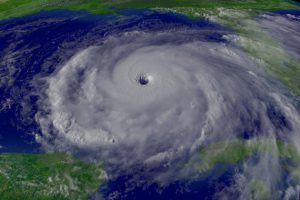
History never crawls or walks. It runs. Sometimes silently as if on the softer sands of time. Sometimes we can hear its footsteps louder as they hit the hot pavement.
As I write this on January 19, 2017, Barack Obama is still the President of the United States. But only just. Great Britain is still a member of the European Union. But only just. And after the painful lessons of the 20th century, nationalism is still a sleeping giant. But only just. The giant is waking.
Since the fall of the Berlin Wall in 1989 to the vote for Brexit in 2016, Europe and the United States have known over a quarter century of relative peace. No wars, hot or cold. Some exceptions: Sarajevo, Srebrenica, 9/11. But for the most part, some 10,000 mornings, afternoons, and evenings have unfolded in secure calm. But as in the eye of a storm, calm can be deceptive. And temporary.
We live in the context of our times, inching from day to day. Not always easy to see the grander sweep of change at work. However, take a peek at larger intervals – birthdays, elections – and it becomes obvious. Nothing lasts forever anymore.
Today is tomorrow’s history.
As an American writer living in Europe, I used to look back at the 1920s with a fond and, as it turns out, naive nostalgia. “The Lost Generation.” Hemingway, Stein, Fitzgerald, Eliot. Disillusionment. Despair. War. How delicious! And how easy now to romanticize that time even as another world war brewed. Conflict is mother’s milk for the artist. Nobody wants a book or poem about daffodils in spring. They want Guernica. They want Gatsby’s broken dreams. Chaplin’s Tramp overwhelmed by Modern Times. Jake’s impotence in The Sun Also Rises. They want “The Wasteland”: “I will show you fear in a handful of dust.” It took 38 million dead in World War I to get to a line like that.
These again are good days for the artist.
Thanks to human numbers swelling (under 3 billion when I was born in 1956, 7.5 billion today), and to human innovation (global warming; artificial intelligence and robotics with their efficiencies of mass scale – thank you Amazon; nuclear bombs over 3,000 times more powerful than the one that annihilated Hiroshima), Man and Womankind stand today on the brink as never before. And to confront these profound dangers, solutions being proposed include: build walls and dig coal. 19th century solutions to 21st century challenges.
Hungry for “the old days,” an alarming number of people are buying into it. Leading them toward this Black Friday sale, the yapping voices of the smaller pipers: Nigel Farage, Geert Wilders, Marine Le Pen, Jarosław Kaczyński, Viktor Orbán. And the booming bass drums moving this marching band backward: Putin, Trump, Xi. War over Taiwan, anyone? Sleeping well tonight, Estonia? Grandparents, happy to know your grandchildren won’t have to travel to the warmth because the warmth is coming to them? And think of the fun they’ll have fishing plastic from the seas! Eight men have wealth equal to the poorest 3.6 billion? The seeds of revolution were planted in such soil. And if that happens, it will not be a billionaire leading that revolt.
Many jokes about “there are two kinds of people…” This is no joke. There are two kinds of people. The greatest divide in human thinking is as follows: “Us against them” vs. “We are all in this thing together.” From there you can zoom in to see the details, the particular fault lines, religious, national, racial. But it’s that bigger question that counts. If one can wholly enjoy one’s own prosperity while others are suffering, one belongs to the first group. If not, to the second. Only one group points toward a brighter future.
Today is tomorrow’s history.
21,908 Total Views, 6 Views Today






